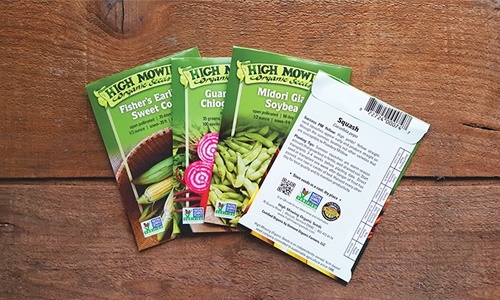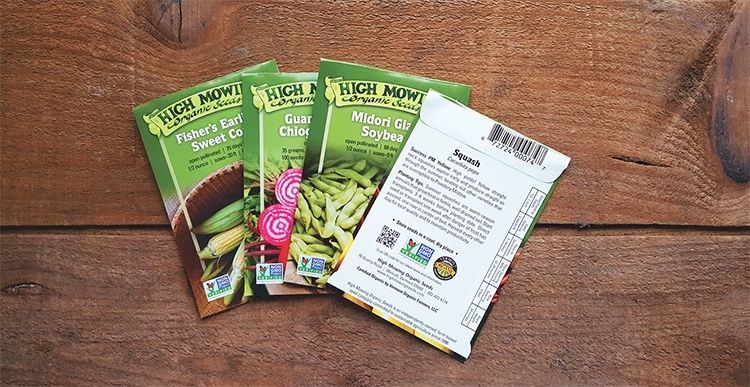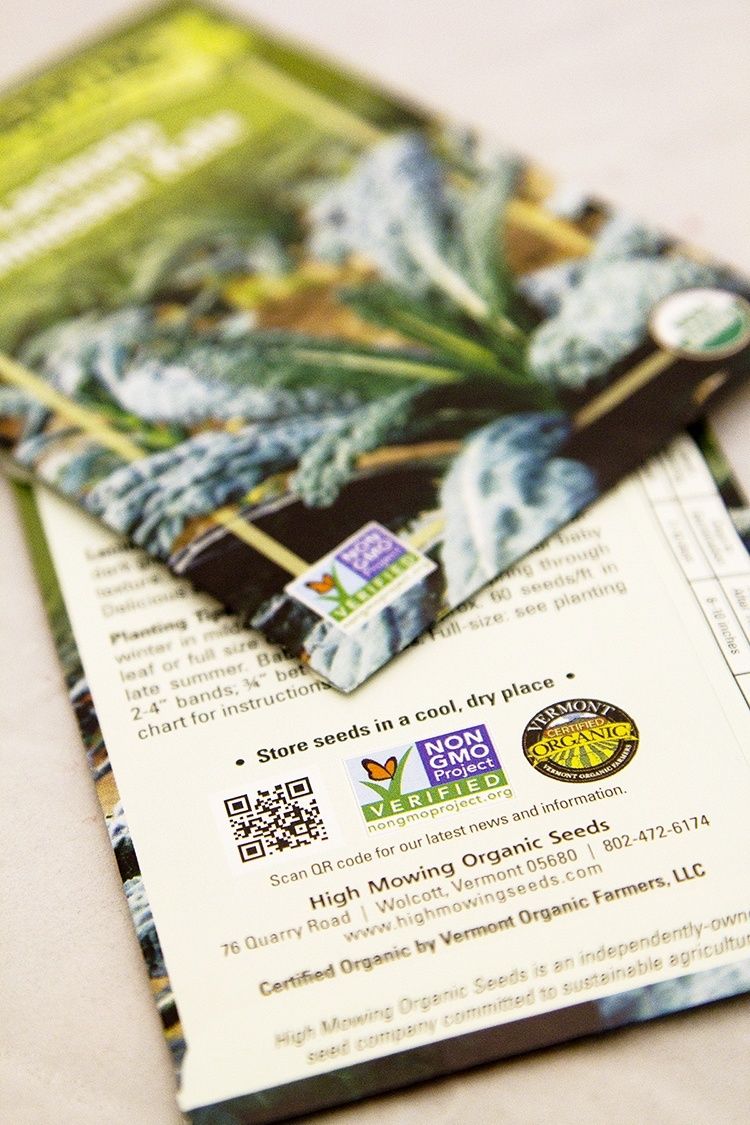


“As demand for non-GMO choices continues to rise, farmers are seeking more non-GMO seed,” Megan Westgate, executive director of the Non-GMO Project, said. “Similarly, smaller farms and home gardeners are choosing to plant more organic and non-GMO varieties.”
High Mowing Organic Seeds Leads the Way
Vermont-based High Mowing Organic Seeds has been the leader in Non-GMO Project verified seeds. All 700 of the company’s organic seed varieties have been verified because of customer demand, according to company president Tom Stearns.
“We’re continuing to hear concerns about GMOs from our customers and while we are certified organic that doesn’t say anything about GMO contamination,” Stearns said, who worked with the Non-GMO Project to develop a non-GMO verification program for seed. “We’ve spent a huge amount of time implementing (GMO) preventative measures and did GMO testing but we felt this wasn’t enough. We wanted third party verification of our claims.”
Stearns said there are many more GMO plants than people think.
“There are some 40 GMO plant species, including things like petunia and endive,” he said. “There are contamination risks even when a GMO crop is not commercially approved, such as when crops such as GMO wheat escape field trials.”
High Mowing Organic Seeds had all of their seed varieties verified to assure their customers.
“If we were to just verify 15 percent of our varieties that have higher GMO risk, our customers may have wondered about the other 85 percent,” Stearns added.
Having all seeds verified also allows High Mowing Organic Seeds to be ready if more GMO varieties come to market since they will have GMO prevention systems in place.
“If GM lettuce is introduced, we are prepared,” Stearns remarked.
Tough Standard to Meet for Corn
Minnesota-based Albert Lea Seed House has begun getting some of its organic seed varieties Non-GMO Project verified.
“There’s a huge demand for non-GMO and we wanted to be on the leading edge,” Mac Ehrhardt, owner and manager Albert Lea, which sells organic and conventional seeds to farmers, said.

 233k
233k  41k
41k  Subscribe
Subscribe 

